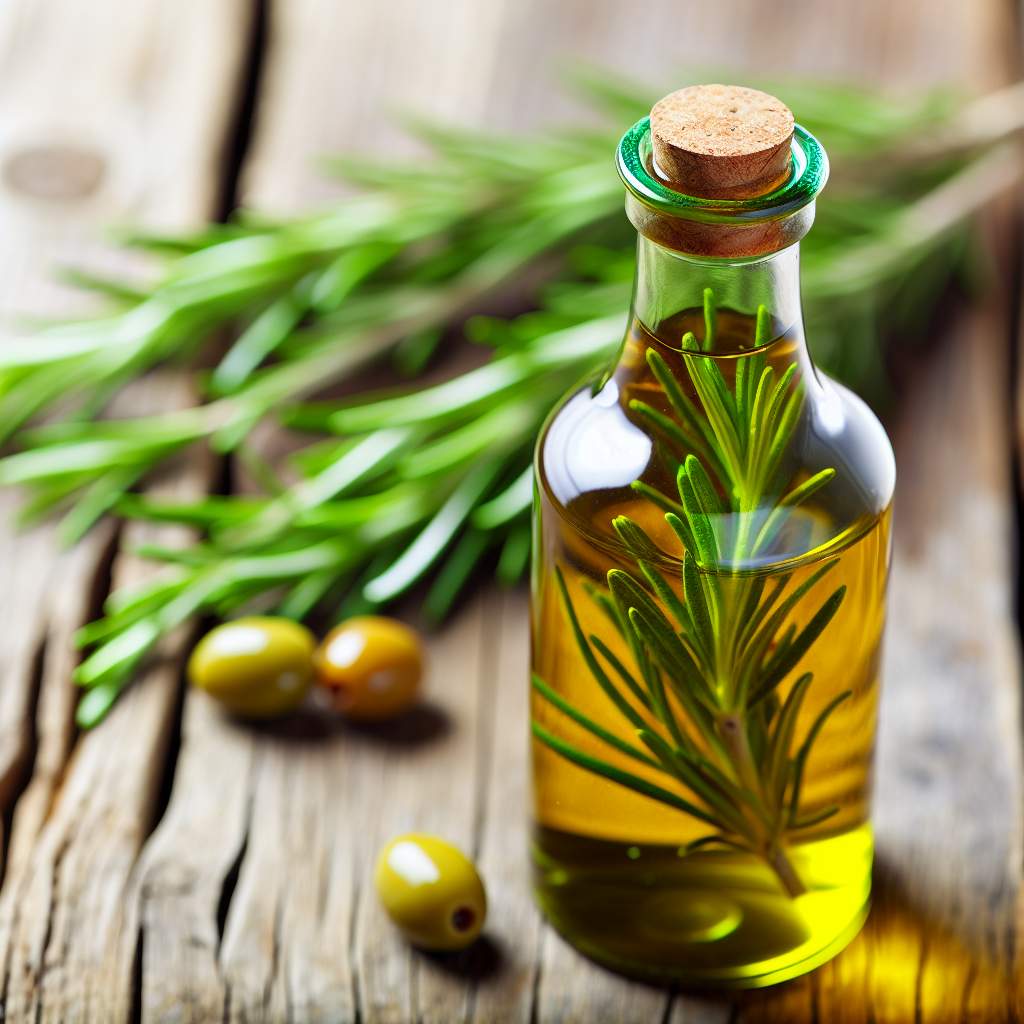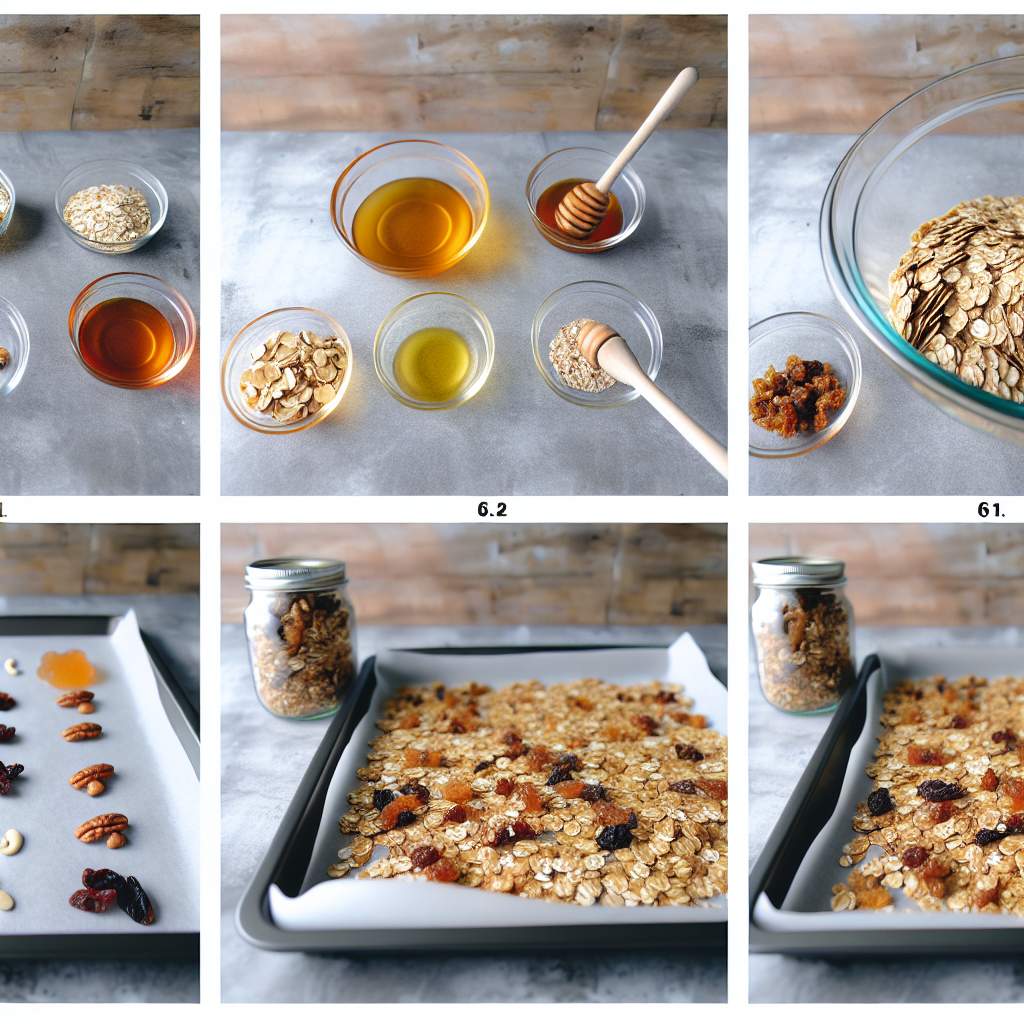There’s something magical about walking into a kitchen filled with the intoxicating aroma of fresh herbs and warm olive oil. Creating your own rosemary infused olive oil isn’t just a culinary project—it’s an experience that transforms ordinary ingredients into something extraordinary. This versatile kitchen staple elevates everything from crusty bread to roasted vegetables, adding a touch of herbaceous sophistication to even the simplest dishes.
What I love most about making infused oils is how they instantly upgrade your cooking with minimal effort. Rosemary’s piney, aromatic profile pairs perfectly with the fruity notes of quality olive oil, creating a flavor foundation that professional chefs rely on daily. Whether you’re an experienced home cook or just beginning your culinary journey, this simple infusion will become your secret weapon for transforming everyday meals into memorable dining experiences.
Rosemary Infused Olive Oil
A fragrant herb-infused oil that adds Mediterranean flavor to any dish. Perfect for dipping, drizzling, and cooking.
Ingredients:
- 2 cups high-quality extra virgin olive oil
- 4-6 sprigs fresh rosemary (about 5-6 inches each)
- 2 cloves garlic, peeled and lightly crushed (optional)
- 1 teaspoon black peppercorns (optional)
- 1 strip lemon zest, pith removed (optional)
- Clean, sterilized glass bottles for storage
Instructions:
- Thoroughly wash the rosemary sprigs and pat them completely dry. Any moisture can cause the oil to spoil.
- Gently bruise the rosemary by rolling it between your palms or lightly crushing it with the side of a knife to release the essential oils.
- If using garlic, peppercorns, or lemon zest, prepare these ingredients as well.
- Pour the olive oil into a small saucepan and add the rosemary sprigs and any optional ingredients.
- Heat the oil over low heat (around 180°F/82°C) for about 5-7 minutes. The oil should be warm but never hot or bubbling—high heat will destroy the delicate flavors and burn the herbs.
- Remove from heat and allow the oil to cool completely in the pan with the herbs still infusing.
- Once cooled, strain the oil through a fine-mesh sieve or coffee filter into a clean, sterilized bottle.
- For aesthetic purposes, you may add a fresh sprig of rosemary to the bottle before sealing.
- Seal tightly and store in a cool, dark place.
Storage Tips:
Store your rosemary infused olive oil in the refrigerator for up to 2 weeks. For longer storage (up to 1 month), remove the solid herbs and garlic from the oil after straining. Always use clean utensils when handling to prevent contamination.
The beauty of rosemary infused olive oil lies in its simplicity and its ability to transform ordinary ingredients into something extraordinary. I’m particularly fond of using it as a finishing oil—that final drizzle that brings brightness and aromatic complexity to a completed dish. The earthy, pine-like notes of rosemary create a warm, inviting flavor profile that works beautifully with Mediterranean cuisine but can easily cross culinary borders.
While many recipes call for heating the oil, it’s crucial to keep the temperature low. Excessive heat can cause the rosemary to release bitter compounds and diminish the fruity character of good olive oil. Think of it as a gentle warming rather than cooking—you’re coaxing the essential oils from the herb, not frying it. This slow, patient approach results in a beautifully balanced infusion where neither the herb nor the oil overpowers the other.
Safety First: Important Considerations
While homemade infused oils are delightful, they do require proper handling to prevent foodborne illness. Botulism can develop in improperly prepared herb-infused oils because the herbs may contain botulinum spores that can grow in the anaerobic (oxygen-free) environment of oil. This is particularly important when including garlic, which is more susceptible to this risk. To minimize this risk, always ensure your herbs are completely dry before infusing, refrigerate your oil promptly, and use it within the recommended timeframe. If you’re concerned about safety or want to create a longer-lasting product, consider the hot infusion method described in the recipe, which helps eliminate some potential pathogens.
Culinary Applications: Beyond Basic Drizzling
The versatility of rosemary infused olive oil is truly remarkable. Here are some of my favorite ways to incorporate this aromatic elixir into everyday cooking:
- Bread Dipping: Mix with a splash of balsamic vinegar for an irresistible appetizer
- Pasta Finishing: Drizzle over fresh pasta with a sprinkle of Parmesan
- Roasted Vegetables: Toss root vegetables in the oil before roasting for depth of flavor
- Grilled Meats: Brush onto chicken or lamb just before serving
- Homemade Vinaigrettes: Use as the oil base for salad dressings
- Pizza Drizzle: Finish a margherita pizza with a light drizzle
- Mashed Potatoes: Fold into creamy potatoes instead of plain butter
Creating variations on this basic recipe allows you to customize the flavor profile to your preferences or to complement specific dishes. Consider adding dried chili flakes for heat, citrus peels for brightness, or additional herbs like thyme or sage to create complex flavor combinations. The possibilities are endless, limited only by your imagination and palate.
Beyond its culinary applications, rosemary infused olive oil makes a thoughtful homemade gift. Package it in an attractive bottle with a handwritten label and perhaps a fresh sprig of rosemary tied to the neck with twine. It’s an inexpensive yet luxurious present that speaks to the care and thoughtfulness you’ve put into creating something by hand. For holiday gifts, consider making larger batches with seasonal additions like orange peel or cinnamon.
What I find most rewarding about making infused oils is how they connect us to culinary traditions that span centuries and cultures. Mediterranean cooks have been enhancing olive oil with local herbs for generations, creating distinctive regional flavors that tell the story of their terroir. When you create your own rosemary infused oil, you’re participating in this rich tradition while simultaneously making it your own. There’s something deeply satisfying about transforming simple ingredients into something greater than the sum of their parts—a kitchen alchemy that enriches not just your food, but your experience of cooking itself.


